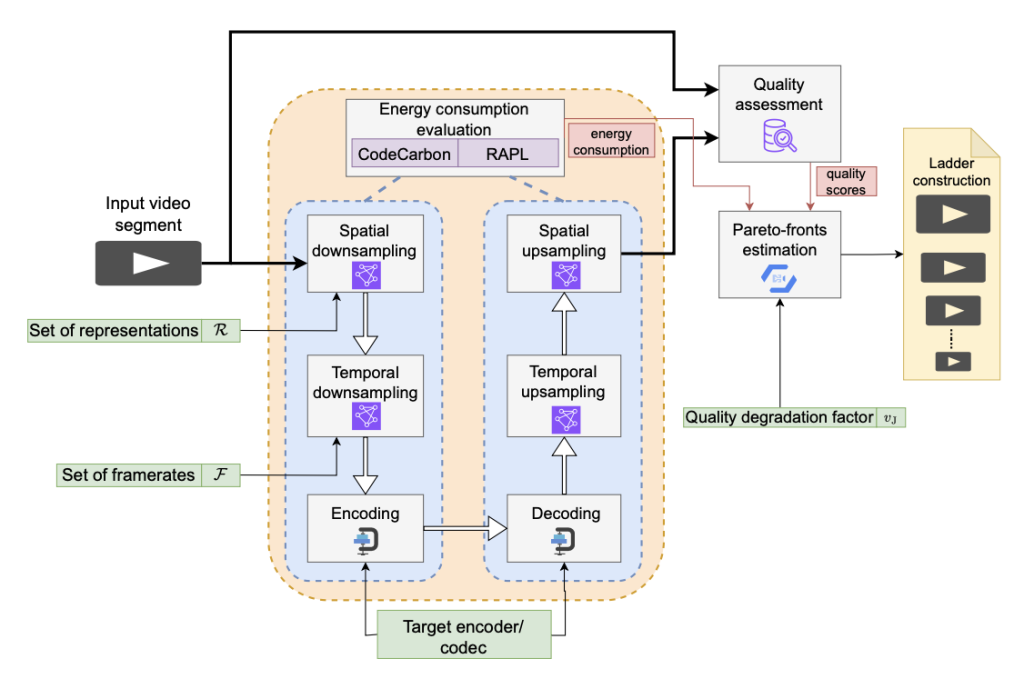Energy-Quality-aware Variable Framerate Pareto-Front for Adaptive Video Streaming
IEEE Visual Communications and Image Processing (IEEE VCIP 2024)
Tokyo, Japan, December 8-11, 2024
Prajit T Rajendran (Universite Paris-Saclay), Samira Afzal (Alpen-Adria-Universität Klagenfurt), Vignesh V Menon (Fraunhofer HHI), Christian Timmerer (Alpen-Adria-Universität Klagenfurt)
Abstract: Optimizing framerate for a given bitrate-spatial resolution pair in adaptive video streaming is essential to maintain perceptual quality while considering decoding complexity. Low framerates at low bitrates reduce compression artifacts and decrease decoding energy. We propose a novel method, Decoding-complexity aware Framerate Prediction (DECODRA), which employs a Variable Framerate Pareto-front approach to predict an optimized framerate that minimizes decoding energy under quality degradation constraints. DECODRA dynamically adjusts the framerate based on current bitrate and spatial resolution, balancing trade-offs between framerate, perceptual quality, and decoding complexity. Extensive experimentation with the Inter-4K dataset demonstrates DECODRA’s effectiveness, yielding an average PSNR and VMAF increase of 0.87 dB and 5.14 points, respectively, for the same bitrate compared to the default 60 fps encoding. Additionally, DECODRA achieves an average reduction in decoding energy consumption of 13.27 %, enhancing the viewing experience, extending mobile device battery life, and reducing the energy footprint of streaming services.
Index Terms—Adaptive video streaming; Decoding complexity; Framerate optimization; Perceptual quality; Decoding energy consumption














